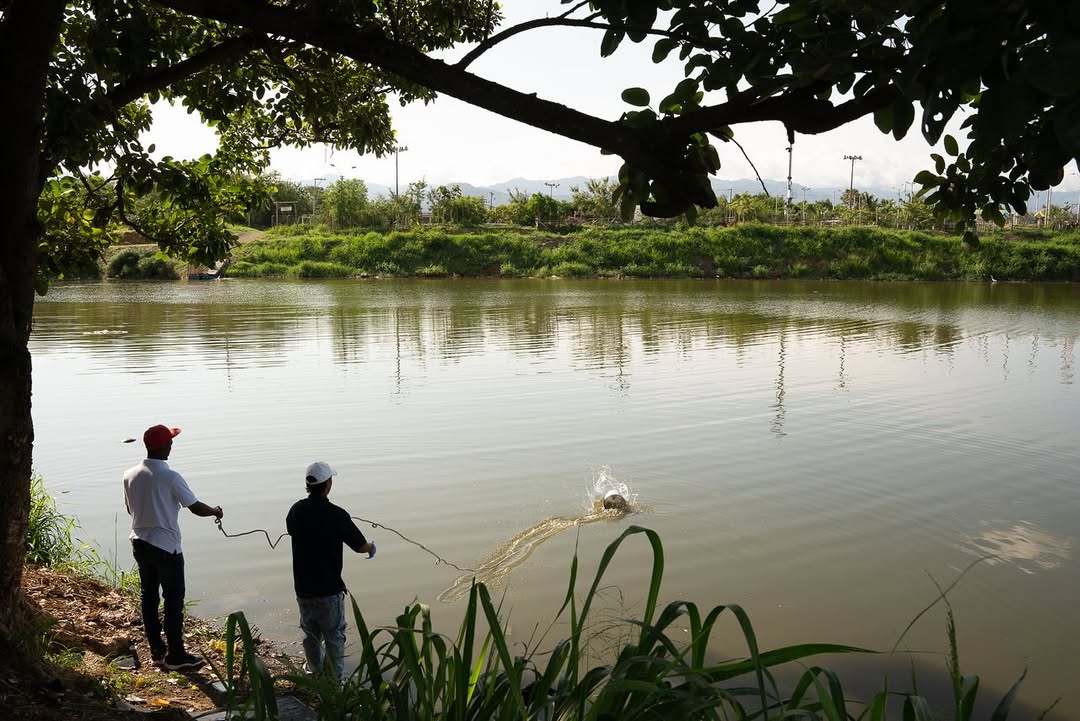

World Rangers Congress 2024


AAE had the opportunity to be part of the #WorldRangerCongress (WRC) 2024 in Hyères, France
💡 Lots of thoughts coming back from this amazing event.
👥 Rangers are nature's first responders. They protect the world's species and ecosystems and are key for the achievement of the GBF's 30x30 target. But they themselves need protection, too!
📖 Two years ago, AAE developed principles (https://lnkd.in/d7b6H5Wb), as well as guidance and tools (https://lnkd.in/dMWMvUwT) for safeguarding the rights and well-being of rangers for the Universal Ranger Support Alliance (URSA). While there is still some way to go, the WRC has shown that efforts are underway to respond to the urgent need to further strengthen and safeguard the ranger workforce. The resulting Hyères Declaration will serve to make the voice of rangers heard in other upcoming international meetings and paves the way forward.
👉 But, why do rangers need safeguarding?
Some key takeaways below:
Takeaway No. 1:
⚖ Rangers can get accused of wrongdoing. Where this is justified, no doubt this needs investigating and follow up. But rangers can also get falsely accused of wrongdoing. And while they should have a right to due process and access to remedy, just like everyone else, this is not a given.
🌳 A case that makes this very clear comes from Argentina: In 2016, two children tragically lost their lives when a tree fell over in a national park. The first to help at site were two rangers, the next the police. The rangers, together with additional colleagues, were prosecuted for the accident and charged with culpable homicide, aggravated by lack of compliance as public officials. In 2021, the federal appeals chamber put them on trial. At this point (not sooner), the National Park Administration hired defence lawyers, and shortly after launched a visibility campaign. In November 2023, on the day the judgment was read, Argentina's main National Parks were officially closed. The rangers were acquitted, however, there is still an open question whether the case will be referred on to the Supreme Court.
❓ The case raises several questions, such as: What can rangers be made responsible for? And who will defend them when they get falsely accused?
📽 The visibility campaign led to a two-minute video (English subtitles can be switched on) that explains the position the country ultimately took towards the case, see https://lnkd.in/e34AQEqp
Takeaway No. 2:
🌍 In several parts of the world, rangers are working under very poor conditions. They lack equipment, training, support and have no insurance that kicks in in the case of accidents in the field. Despite these conditions, they do not back down, spend extended periods in the field, help, where they get drawn into rescue missions, and in some regions even confront poachers or armed groups, risking their health, and potentially their lives.
💡 Over the past few years, efforts have been made not only to raise awareness of these conditions (see below example references), but also to come up with tangible solutions. One of them is Ranger Protect (https://lnkd.in/eMC6WpSP), an insurance scheme developed jointly by the Game Ranger Association of Africa (GRAA) and SATIB, specifically targeted at rangers, offering accidental death and disability cover as well as medical evacuation cover and incident management support. About 3000 rangers in Africa are already covered and the aim is to substantially increase that number in the course of 2025.
👏 A major push to further support the coverage of Ranger Protect can be expected from the Ranger Welfare and Standards Initiative (RWSI), developed by Tusk in partnership with the GRAA and with financial support of The Royal Foundation of the Prince and Princess of Wales (https://lnkd.in/e8kcXtMr). The insurance scheme as such and RWSI as a whole are great examples for ongoing efforts to improve matters, and much needed. Since rangers are key to achieving the 30x30 target, it is crucial to ensure that they can do their jobs well. For information on how AAE tries to contribute to the cause, see https://lnkd.in/eMT3AtfM
📖 Example references:
- Anagnostou, M., Gunn, V., Nibbs, O., Muntaner, C. & Doberstein, B. (2022). An international scoping review of rangers’ precarious employment conditions. Available from: https://lnkd.in/eu3TUKRm
- Belecky, M., Singh, R. & Moreto, W. (2019). Life on the frontline 2019: A global survey of the working conditions of rangers. WWF. Available from: https://lnkd.in/ey6g4hxH
- Singh, R., Gan, M., Barlow, C., Long, B., Mcvey, D., De Kock, R., Gajardo, OB., Avino, FS. & Belecky, M. (2020). What do rangers feel? Perceptions from Asia, Africa and Latin America. PARKS, 26(1) 63–76. Available from: https://lnkd.in/evPq85h9



_Tuti%20Iraola.jpeg)
